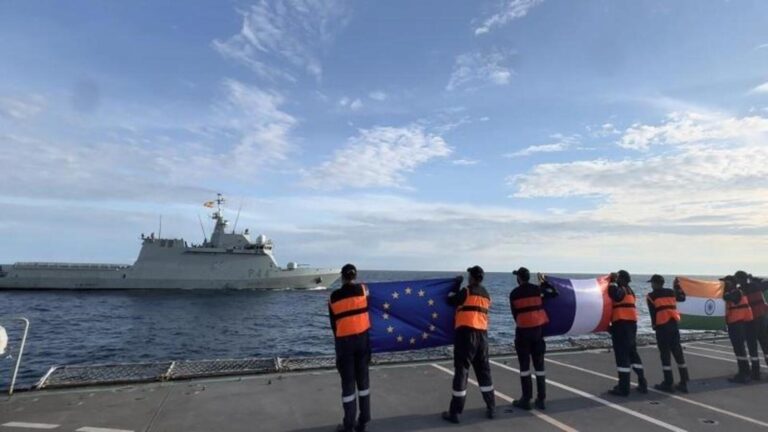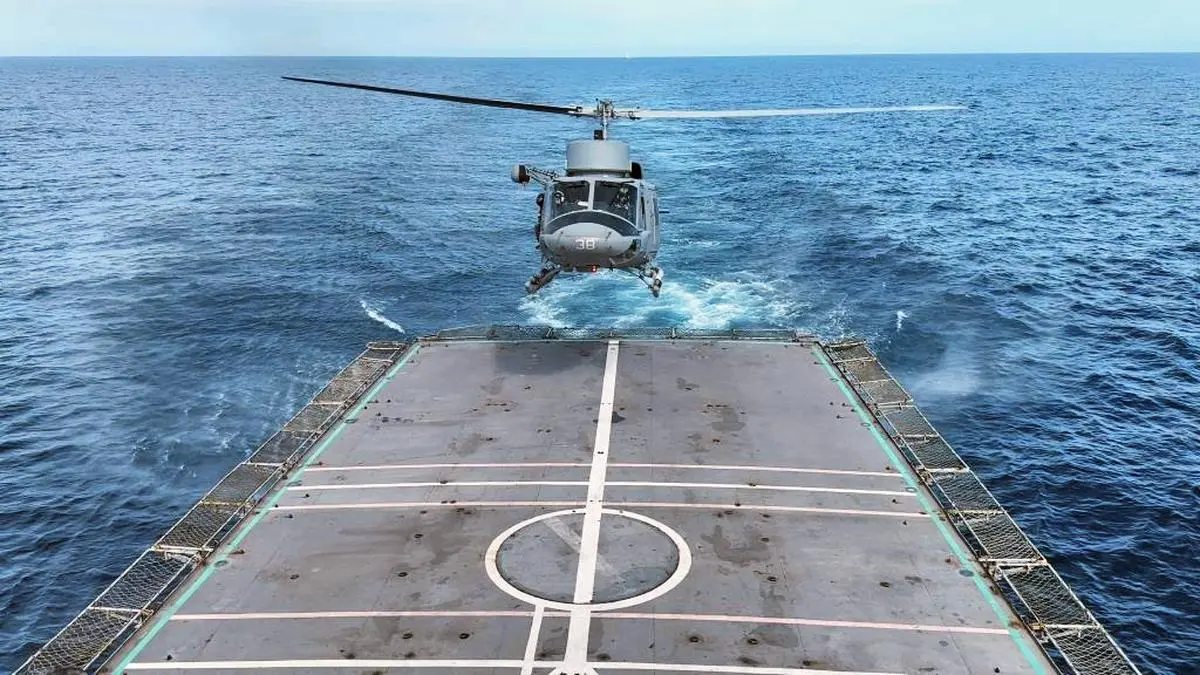
Mumbai, on May 29 (PTI), India and the European Union will participate in a joint naval exercise from June 1 to 3 in the Indian Ocean on advanced counter-piracy operations, interoperability, tactical maneuvers and improved communication protocols reflecting the cooperation in increasing maritime security between the two parties on Thursday.
The exercise will involve ships of the Indian Navy and two frigates of the European Union naval operation (Eunavfor) Atalanta, the Italian ship Antonio Marceglia and the Spanish ship Reina Sofia, as well as their respective air assets, added the press release.
The ships are currently daring in Mumbai.
“The joint exercise will focus on advanced counter-pirate operations, interoperability, tactical maneuvers and improved communication protocols, reflecting increasing maritime security cooperation between the two parties of respective maritime operations (MOC) will control the exercise,” said the press release.
Speaking to journalists, Herve Delphin, EU ambassador to India, said that the two EU ships belong to Navy operations in Atalanta which cover the Indian Ocean in the North West, in particular the Gulf of Aden. Atalanta has proven itself to prevent and intercept piracy acts.
Over time, there was greater recognition for India and the EU of the interest of cooperating in the fields of maritime security and in particular in this part of the Indian Ocean.
Delphin said that the unprecedented presence of two EU naval ships in Mumbai is the result of the commitment to bring cooperation between the two parties to a much more granular, operational and tactical level.
“We both recognize ourselves as maritime security providers in the Indian Ocean and it is in a common interest to develop cooperation at sea,” he said.
This exercise is based on the visit of the College of Commissioners in India in February 2025. One of the main deliverables was to improve the commitment to awareness of the maritime field with a view to promoting shared evaluation, coordination and interoperability, said a statement from the EU.
Launched in 2008 to combat hacking and armed robbery in the Gulf of Aden, the mandate of Operation Atalanta has evolved. It includes a wide range of security challenges, including counter-notots, smuggling weapons and the fight against illegal, unsuccessful and unregulated (UIU) fishing in the Horn of Africa and the Western Indian Ocean.
The Eunav warships for Atalanta deployed in the Indian Ocean led “passage exercises” (PastEx) at sea with the Indian Navy in the past.
Rear Admiral Davide Da Pozzo, Eunav’s commanding commander for Atalanta, said that the operation of the hacking bodies fell.
The fourth EU-Indian maritime security dialogue held in March 2025 also underlined the fight against illicit maritime activities and the exploration of new joint maritime initiatives aligning the objectives of this exercise. Vice-admiral Ignacio Villanueva Serrano, commander of the Eunav operation for Atalanta, visited India in April to raise bilateral cooperation with the Indian Navy.
“Next month, the Minister of External Affairs, Jaishankar, will be in Brussels for the very first ministerial strategic dialogue,” said Delphin.
In a few weeks, on the EU side, there will be a presentation of the new strategic cooperation program. It will be the basis of the future joint cooperation map, said Delphin.
“This is a very intensive period for EU-Indian cooperation and partnership,” said the EU envoy.
Naval cooperation between the EU and India has developed in recent years with joint exercises in the Gulf of Guinea and the Gulf of Aden.
The Indian navy has also provided ships with escort chartered to the approved world feeding ships coordinated by operation Eunavfor Atalanta.
The EU and India increase cooperation on maritime security. The EU and India share a strong commitment to a free, open, inclusive maritime order based on rules in the Indo-Pacific region. This is underned by respect for territorial integrity and sovereignty, democracy, the rule of law, freedom of navigation and overview, a legitimate trade without hindrance and a peaceful resolution of disputes in accordance with international law, in particular the United Nations Convention on the Law of the Sea (CNONDOS), said the EU press release.



